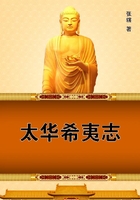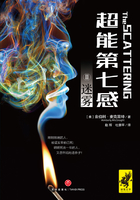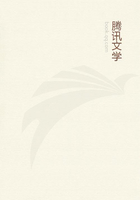Continual observations on the conduct of others lead us gradually to form to ourselves certain general rules as to what it is fit and proper to do or to avoid. If some of their actions shock all our natural sentiments, and we hear other people express like detestation of them, we are then satisfied that we view them aright. We resolve therefore never to be guilty of the like offences, nor to make ourselves the objects of the general disapprobation they incur. Thus we arrive at a general rule, that all such actions are to be avoided, as tending to make us odious, contemptible, or punishable. Other actions, on the contrary, call forth our approbation, and the expressions of the same approval by others confirm us in the justice of our opinion. The eagerness of everybody to honour and re- ward them excite in us all those sentiments for which we have by nature the strongest desirethe love, the gratitude, the admiration of mankind. We thus become ambitious of per- forming the like, and thereby arrive at another general rule, that all such actions are good for us to do.
These general rules of morality, therefore, are ultimately founded on experience of what, in particular instances, our moral faculties approve of or condemn. They are not moral intuitions, or major premisses of conduct supplied to us by nature. We do not start with a general rule, and approve or disapprove of particular actions according as they conform or not to this general rule, but we form the general rule from experience of the approval or disapproval bestowed on particular actions. At the first sight of an inhuman murder, detestation of the crime would arise, irrespective of a reflection; that one of the most sacred rules of conduct prohibited the taking away another man's life, that this particular murder was a violation of that rule, and consequently that it was blameworthy. The detestation would arise instantaneously, and antecedent to our formation of any such general rule. The general rule would be formed afterwards upon the detestation we felt at such an action, at the thought of this and every other particular action of the same kind.
So when we read in history or elsewhere of either generous or base actions, our admiration for the one and our contempt for the other does not arise from the consideration that there are certain general rules which declare all actions of the one kind admirable and all of the other contemptible.
Those rules are all formed from our experience of the effects naturally produced on us by all actions of one kind or the other.
Again, an amiable, a respectable, or a horrible action naturally excites for the person who performs them the love, the respect, or the horror of the spectator. The general rules, which determine what actions are or are not the objects of those different sentiments, can only be formed by observing what actions severally excite them.
When once these moral principles, or general rules, have been formed, and established by the concurrent voice of all mankind, they are often appealed to as the standards of judgment, when we seek to apportion their due degree of praise or blame to particular actions. From their being cited on all such occasions as the ultimate foundations of what is just and unjust, many eminent authors have been misled, and have drawn up their systems as if they supposed "that the original judgments of mankind, with regard to right and wrong, were formed, like the decisions of a court of judicatory, by considering first the general rule, and then, secondly, whether the particular action under consideration fell properly within its comprehension."To pass now from the formation of such general rules to their function in practical ethics. They are most useful in correcting the misrepresentations of things which self-love is ever ready to suggest to us. Though founded on experience, they are none the less girt round with a sacred and unimpeachable authority. Take a man inclined to furious resentment, and ready to think that the death of his enemy is a small compensation for his provocation.
From his observations on the conduct of others he has learned how horrible such revenges always appear, and has formed to himself a general rule, to abstain from them on all occasions. This rule preserves its authority with him under his temptation, when he might otherwise believe that his fury was just, and such as every impartial spectator would approve. The reverence for the rule, impressed upon him by past experience, checks the impetuosity of his passion, and helps him to correct the too partial views which self-love might suggest as proper in his situation. Even should he after all give way to his passion, he is terrified, at the moment of so doing, by the thought that he is violating a rule which he has never seen infringed without the strongest expressions of disapprobation, or the evil consequences of punishment.















